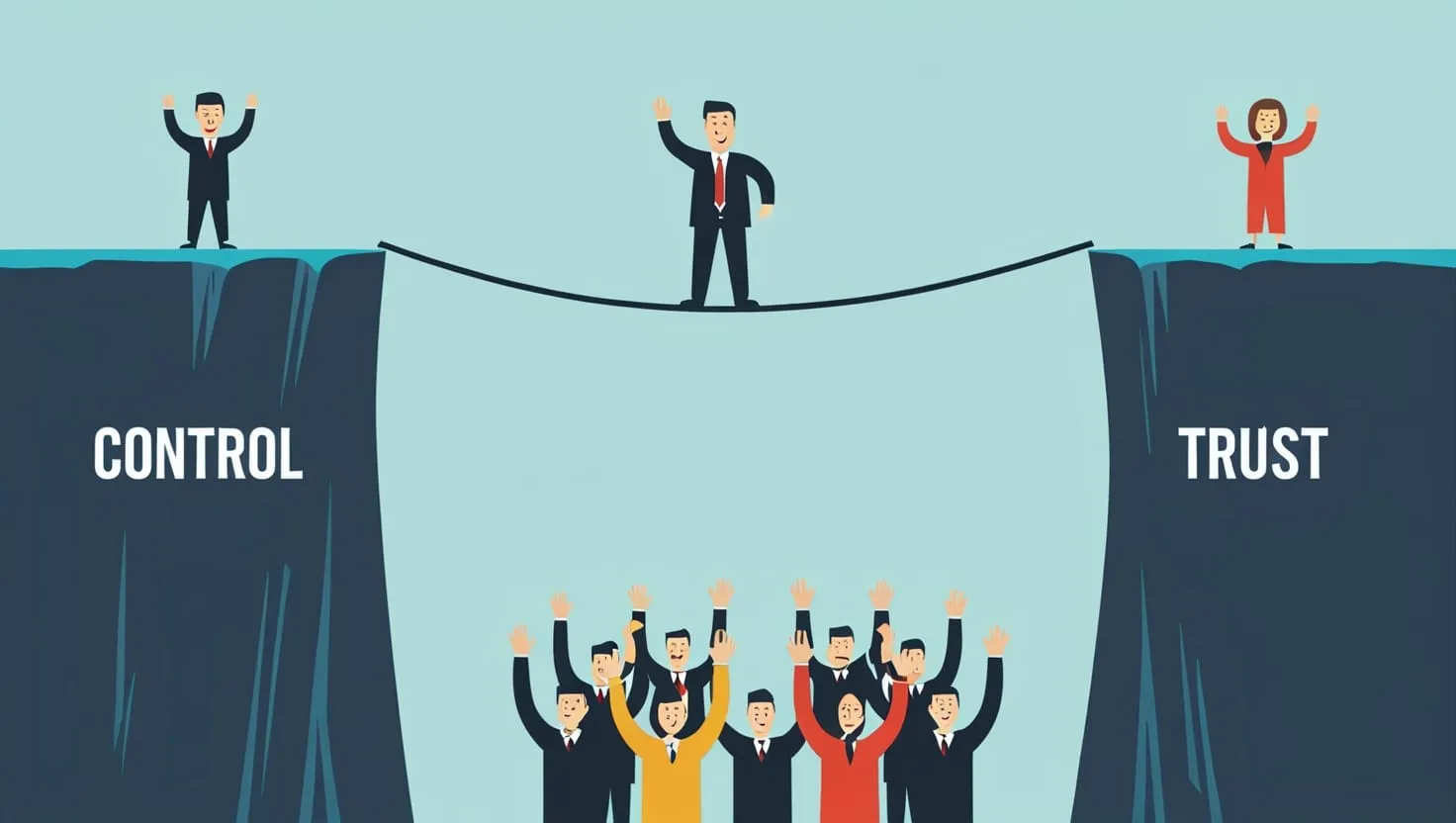Navigating the Maze: Mastering Office Politics with Integrity
Office politics. Those two words can make even the most seasoned professionals cringe. It's like walking through a minefield, isn't it? You're trying to get ahead, but you don't want to step on any toes or compromise your values. Well, buckle up because we're about to dive into the world of office politics and how to navigate it like a pro.
First things first, let's get one thing straight. Office politics isn't just about sneaky deals in dark corners or playing favorites. It's more like a complex dance of relationships, power dynamics, and unwritten rules that shape how things get done in your workplace. And guess what? It's everywhere. From the smallest startup to the biggest corporation, office politics is as ubiquitous as that stale coffee in the break room.
So, how do you play the game without losing yourself? It starts with understanding the landscape. Think of it like being a detective. You need to observe, listen, and learn. Who are the key players? How do decisions really get made? What are the unspoken rules everyone seems to follow? Once you crack this code, you'll be better equipped to navigate the choppy waters of office politics.
Now, let's talk about relationships. No, not the "let's be besties and braid each other's hair" kind of relationships. We're talking about genuine, professional connections. These are the backbone of successful office politics. It's not about schmoozing with higher-ups just because they might help your career. It's about building authentic relationships with people you work with daily.
Remember that project you're working on? Take some time to really get to know your team members. What makes them tick? What are their strengths? How can you support them? This isn't just about being nice (although that's a bonus). It's about creating a network of mutual respect and collaboration. Trust me, when you need support or want to influence a decision, these relationships will be your secret weapon.
Now, let's chat about communication. In the world of office politics, how you say something is often as important as what you say. Be professional, fair, and authentic in all your interactions. Encourage open dialogue and transparency. Got an issue with a colleague? Don't go venting to everyone in the break room. Pick up the phone or schedule a face-to-face chat to address it directly. Miscommunications are often at the root of office politics problems, and direct, honest communication can nip them in the bud.
If you're in a leadership position, remember that your actions set the tone for the entire team. Lead by example. Show integrity, fairness, and professionalism in everything you do. When conflicts arise (and they will), be the calm in the storm. Stay neutral, focus on finding common ground, and always strive for solutions that benefit the organization as a whole.
Speaking of neutrality, it's crucial when navigating office politics. Avoid taking sides or playing favorites. Instead, be the voice of reason and objectivity. Imagine you're mediating a disagreement between two team members. Your job isn't to declare a winner, but to help them find a solution that works for everyone. It's like being a referee, but without the whistle and striped shirt.
Clear expectations are another key to successfully navigating office politics. Make sure everyone knows what's expected of them. If your organization values transparency, make sure that's reflected in how you communicate and make decisions. By setting clear guidelines, you can minimize misunderstandings and conflicts, creating a culture of accountability and respect.
Now, let's talk about you. Yes, you. Understanding yourself is crucial in the world of office politics. Take some time to reflect on your interactions at work. What pushes your buttons? What makes you feel valued? Every interaction, good or bad, is a chance to learn about your values and how you fit into the workplace ecosystem.
Here's a pro tip: When there's a change in leadership, share some personal insights with your new manager. Maybe you've taken a personality assessment that explains how you work best. Sharing this information can help your new boss understand you better and improve your working relationship. It's like giving them a user manual for working with you effectively.
Now, let's address the elephant in the room - gossip. It's tempting, isn't it? That juicy tidbit about who's getting promoted or who messed up the big presentation. But here's the thing: gossip is like quicksand in office politics. The more you engage, the deeper you sink. Instead of getting caught up in the rumor mill, focus on finding solutions and building consensus. If you hear something that sounds like gossip, address it directly with the person involved. Encourage open and honest communication, even when it's uncomfortable.
Sometimes, it's easy to get so caught up in office politics that you lose sight of what's really important. Remember, your primary job is to do your best work and focus on your goals and priorities. If you find yourself getting bogged down in political drama, take a step back. Refocus on what's important. If needed, seek support from a mentor, HR representative, or another trusted colleague. Staying positive and task-focused is your best defense against the negative aspects of office politics.
Understanding power dynamics is another crucial aspect of navigating office politics. It's like a game of chess - you need to know how each piece moves to play effectively. Identify the key stakeholders, decision-makers, and influencers in your organization. Understand their roles and relationships. Build strategic alliances with individuals who can support your goals and initiatives.
For example, let's say you're working on a project that requires input from multiple departments. Identify the key players in each department and start building relationships with them. Offer support and assistance when appropriate. It's about building goodwill and reciprocity that can help you navigate office politics more effectively.
Creating an environment of open communication and cooperation is also crucial. Encourage respectful debates and allow employees to openly discuss various issues and topics. Regular team meetings, brainstorming sessions, and one-on-one check-ins can go a long way in fostering open communication. And here's a thought - provide channels for anonymous feedback. It can help employees feel more comfortable sharing their concerns without fear of repercussions.
Intuition plays a big role in navigating office politics. Trust your gut. Stay positive and task-focused, avoiding negative politics and maintaining a professional demeanor. When in doubt, don't be afraid to ask for guidance from your manager. Always keep your goals in mind and remember that your best position is to stay positive and contribute effectively to the organization.
In today's world of remote work, navigating office politics might seem a bit trickier. But the same rules apply. Stay focused on being a positive contributor to the organization. Build relationships, even if it's through video calls and chat messages. Communicate clearly and often. And remember, your attitude and work ethic speak volumes, even through a computer screen.
So, there you have it - your guide to navigating the maze of office politics with your integrity intact. It's not about playing dirty or stepping on others to get ahead. It's about understanding the landscape, building genuine relationships, communicating effectively, and staying true to your values.
Remember, office politics isn't personal - it's about making authentic connections and successfully advocating for yourself and your ideas. By understanding the rules of the game and playing accordingly, you can advance your career while staying true to who you are.
The next time you find yourself in a complex office situation, take a deep breath. Remember what you've learned. Stay focused on your goals, maintain your integrity, and navigate the situation with finesse. You've got this!
Office politics doesn't have to be a dirty word. With the right approach, it can be an opportunity to showcase your leadership skills, build meaningful relationships, and make a positive impact in your workplace. So go ahead, step into the arena with confidence. You're now equipped to play the game of office politics - and play it well.






